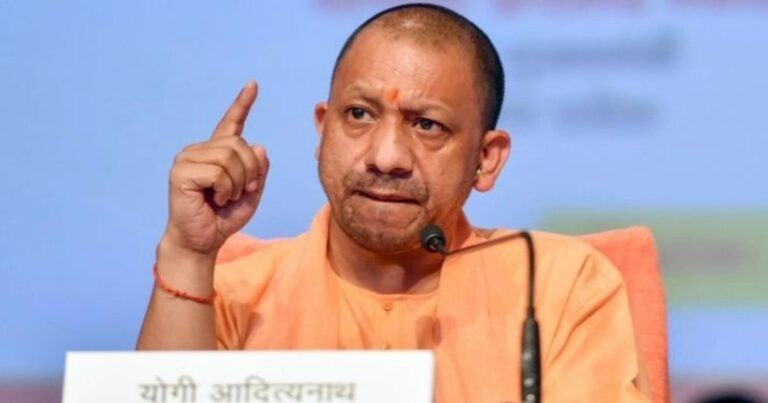Ayodhya: Reeling from a crushing electoral defeat in Ayodhya, the Yogi Adityanath government in Uttar Pradesh has shifted its policy from “business first” to “rural first.”
The Bharatiya Janata Party (BJP), which heavily emphasized the Ram temple in its election campaign, lost the Faizabad Lok Sabha seat, a temple-political heartland, to the Samajwadi Party (SP). The BJP’s defeat in Faizabad, home to the newly dedicated Ram temple, has been blamed on discontent among local shopkeepers. Many locals, whose shops were demolished to make way for the construction of the Ram temple, expressed their discontent through voting. This discontent was a major factor in the defeat of the BJP’s two-term MP Lal Singh, who lost to the SP’s Audesh Prasad by 54,567 votes.
Statement by Mr. Pankaj Gupta, Chairman, Ayodhya Dam Vyapal Mandal
Many traders and residents feel the compensation they have received is grossly inadequate. Pankaj Gupta, president of Ayodhya Dham Vyapar Mandal, told FPJ that local traders are being unfairly blamed for the BJP’s defeat in Faizabad parliamentary constituency.
“Our shop was demolished to make way for the Rampath expansion work and the compensation we received was a charity-like sum of just Rs 100,000 to 200,000. We closed our shop for two days in protest but no representative or official was willing to listen to our grievances,” he said.
Gupta said that before the 2022 state assembly elections, then Deputy Chief Minister Dinesh Sharma had promised traders that they would get new shops for free in exchange for their demolished ones. This promise led many to vote for Ved Prakash Gupta, who was subsequently elected with the BJP ticket. But after the elections, traders received only a compensation of Rs 1 lakh and were asked to pay Rs 2-2.5 lakh for new shops. “How can small traders who earn daily wages be able to pay such a huge amount,” Gupta questioned.
Another businessman said that under the guise of development, the BJP government has targeted traders the most. Shops have been demolished and compensation has been minimal. As work to widen Parikrama Marg continues, residents who had invested huge sums to buy homes continue to be displaced, but receive little compensation in return.
Policy change under Yogi Adityanath-led government
The Yogi government has announced significant policy changes aimed at benefiting local traders affected by the Ram Pass scheme, and the government appears to have woken up from its crushing electoral defeat.
The new policy allows displaced shopkeepers to own 500 newly constructed shops on long-term, interest-free installments. Previously, shopkeepers had to pay up front to acquire ownership of their shops, which could cost anywhere from 2 million to 2.5 million rupees. This requirement forced many shopkeepers to consider bank loans, making it nearly impossible for them to own new shops.
However, under the revised policy, shopkeepers will be able to pay maintenance charges for their shops interest-free for a period of 20 years. The decision has been welcomed by the affected traders.
“The Ayodhya Development Authority (ADA) is now handing over the shops without asking for any down payment,” Ayodhya district commissioner Gaurav Dayal said.
“The entire cost will be paid in interest-free installments over 20 years,” he further told FPJ.
Mohinder Srivastava, a local trade leader, expressed relief, saying the policy change should have been implemented much earlier.
“Already 150 shopkeepers have got their shops back following this decision,” he said.
The Yogi government’s policy shift in Ayodhya reflects a broader attempt to regain the trust of local communities and address the discontent that contributed to the BJP’s defeat in the recent elections. As the political dynamics in Uttar Pradesh continue to evolve, a focus on balancing development and local interests will be crucial for the ruling party.
Published: Monday, June 17, 2024 11:29 AM IST

